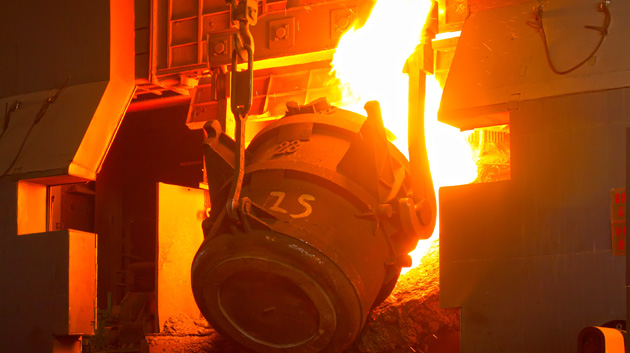The Growing Calls for Anti-Dumping Measures against China’s Steel Products
It Is Time To Review the Structure That Has Unfairly Enriched China
junrong / Shutterstock.com
The Japan Iron and Steel Foundation, the industry organization of iron and steel makers, recently announced that Mr. Kosei Shindo, President of Nippon Steel & Sumitomo Metal Corporation, assumed the post of chairman of the Foundation. At the press conference held to report his inauguration, he said that the environment surrounding the steel industry was very severe, expressing concern that the economic slowdown of China that produces about half of the world’s crude steel has seriously affected the economy of the Japan’s steel industry.
China’s economic slowdown is causing a serious supply glut in steel and thereby the dumping of steel products into overseas markets, pushing downward the price of steel in the international market. Due to China’s steel products glutting the market, Japan’s steel makers announced a profit decline across the board. (See accompanying table)
| Steel Maker’s Name | Net Profit | Percentage change over the previous term |
|---|---|---|
| Nippon Steel & Sumitomo Metal Corporation | ¥145.4 billion | Down 32% |
| JFE Holdings, Inc. | ¥33.6 billion | Down 76% |
| \KOBELCO | ¥-21.5 billion | Negative earnings |
(The financial results of three major steelmakers for the fiscal year ending March 2016. The table was created by the Editor of the Liberty)
The Steel Industry Enhances Cooperation against China
China’s cheap steel exports were one of the major issues at the Group of Seven meeting (Ise-shima summit meeting) that concluded on May 27th. At the Leaders Declaration, adopted at the summit stated that with an eye toward China’s dumping export, the G7 leaders would consider implementing measures to defend the steel industry against dumping as necessary, and agreed to work together to address the issue.
Prior to the declaration, the U.S. had already determined that China’s unfairly priced steel should be subject to anti-dumping duties. It is said that the international community is trying to build cooperation against unfair practices by China in the steel industry.
The Lenient Attitude Just Helped China Proceed with Military Expansion
The steel industry is not the only issue. The essential problem is that the international community has maintained a lenient attitude toward China, which has allowed the country to gain excessive profit. So this community should look back on the past and reflect on its actions..
China introduced market economies through reform and an opening-up policy including establishing special economic zones (SEZs) and drawing in foreign capital.
In 2001, the country joined in the WTO and became the world’s second largest economic power in terms of GDP.
Under these circumstances, the international community was hoping that China’s practice of free trade would collapse the Communist Party dictatorship. China achieved economic growth by using the power of foreign capital and pumped wealth from the economic growth into military expansion, leading to the territorial disputes in the East and South China Sea. The international community obviously erred in its judgment about China underestimating its capabilities and motives for expansion
Has Japan-China Trade Improved the Japanese Economy?
Also in Japan it was the prevailing thought that China’s economic growth could have revived Japan’s long struggling economy after the burst of the bubble economy. However, as Japan expands its trade with China, domestic employment flows to China. The wage levels recorded negative numbers and Japan’s GDP has been leveling off since 1990s.
With a semblance of a developing country, China has for years gained a greater voice in the world economy while blocking free trade. It is high time for the international society to urge China to review its manner of conducting its affairs .
In order to revive Japan, it is essential for us to pressure China to shift to a free system, although it will have to bear a burden accordingly.
Japan should learn from the U.S. which once urged Japan to carry out structural reform in the automatic industry to defend its national interests.



















